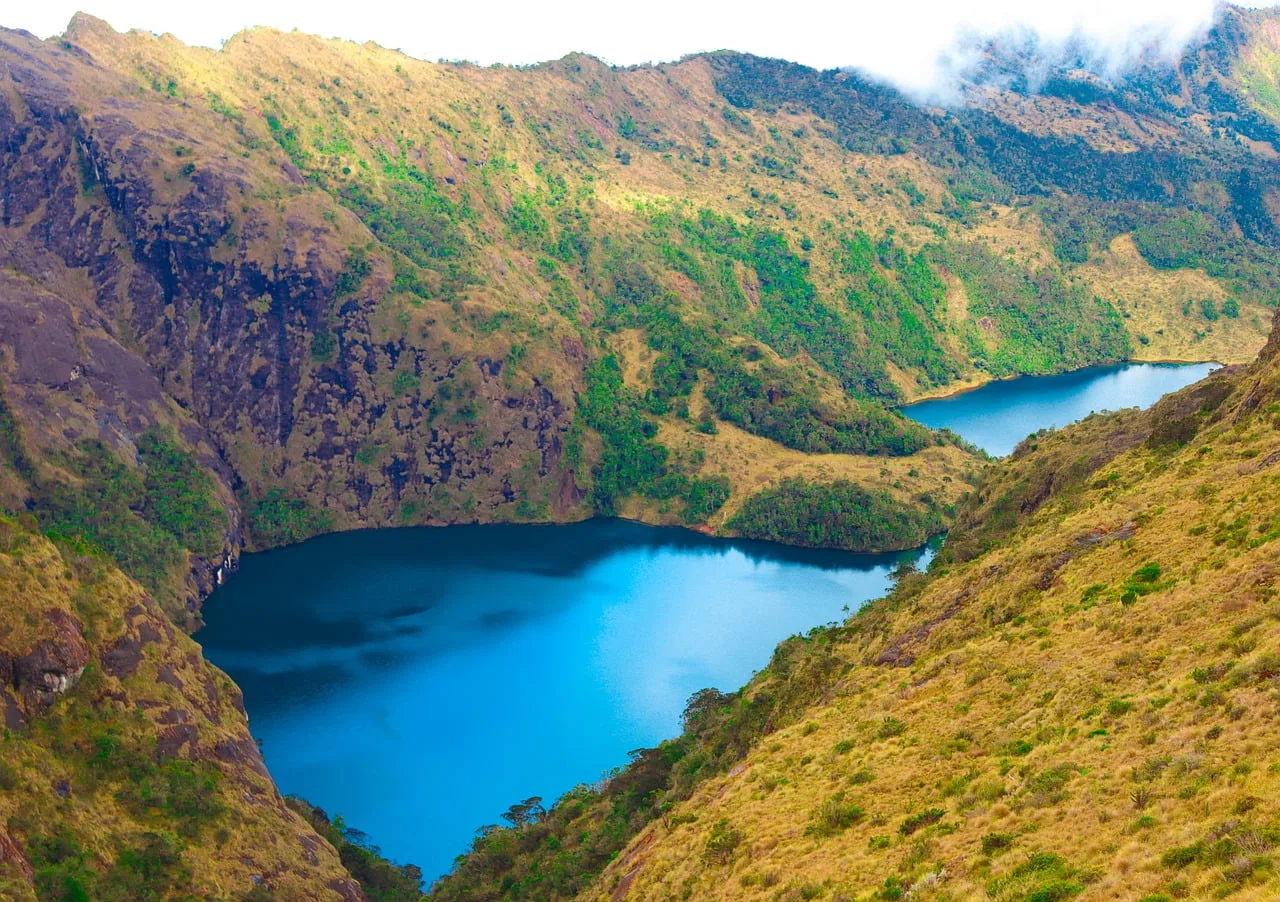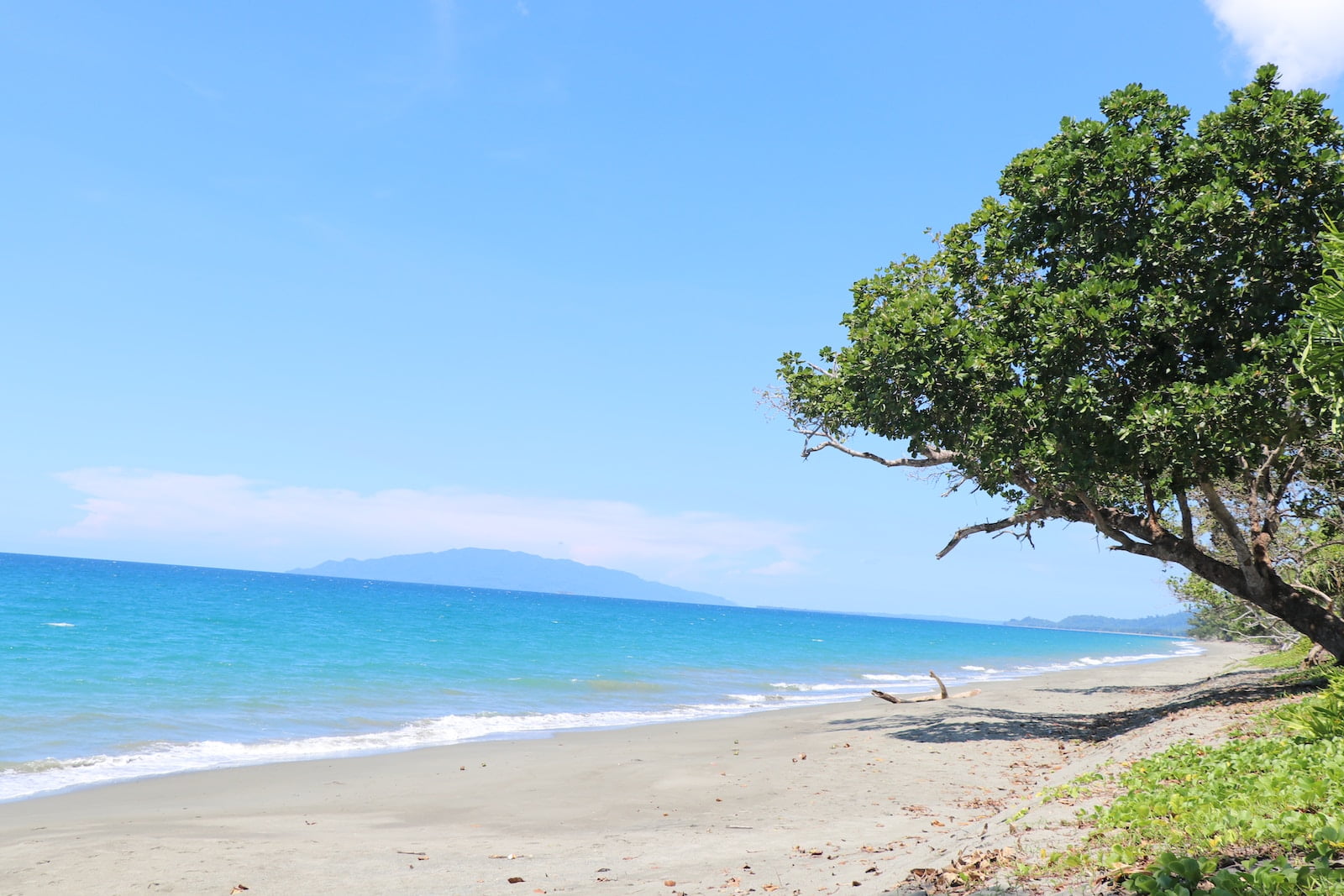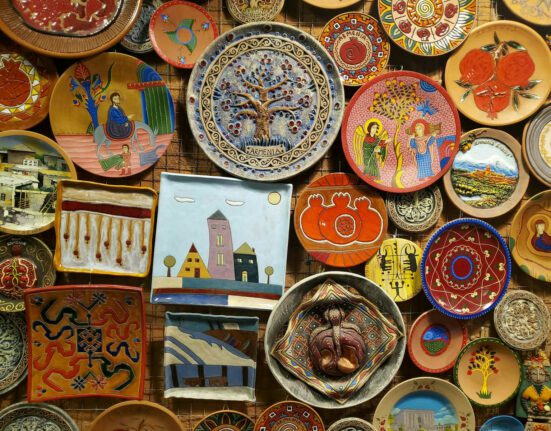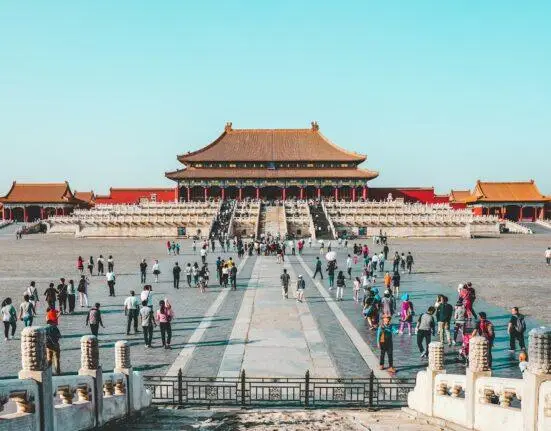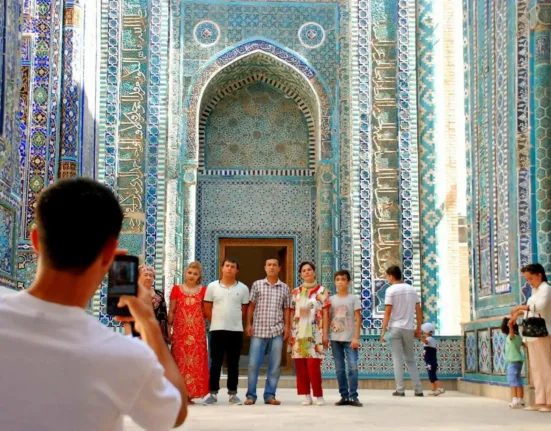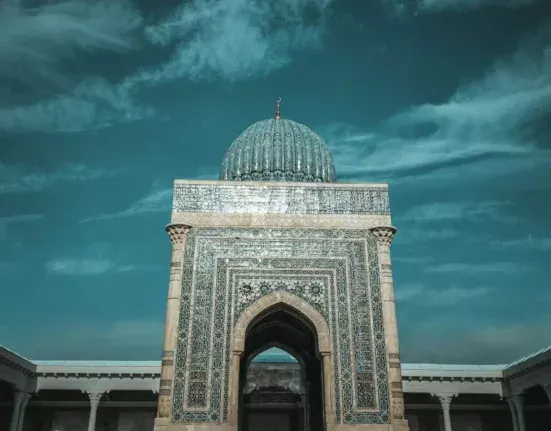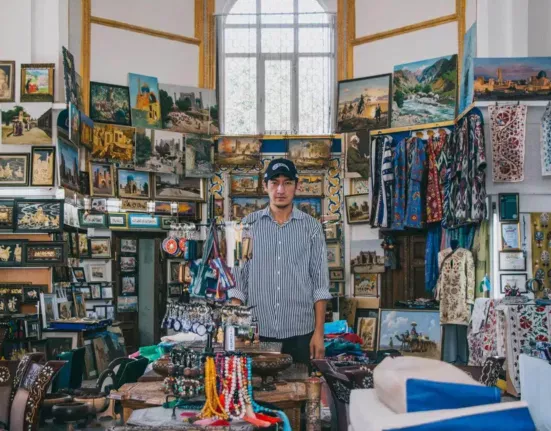Summary. This article details the costs associated with a visit to Papua New Guinea. While many factors, such as choice of accommodation, whether to use a guide or rental car, and distance traveled, will influence the cost of a visit, it is generally possible to visit the country on a budget. Costs can be kept lower by avoiding pricey restaurants and opting for street food, leveraging public transportation, and by negotiating rates for tours and activities.
Have you ever considered a visit to Papua New Guinea but thought twice over the expense? If you’ve found yourself wondering about what your trip will cost you, then you’ve come to the right article. Is it expensive to visit Papua New Guinea? Let’s dive into what you can expect to pay for different aspects of this unique destination. First off, Papua New Guinea is considered a remote location, so the array of activities, flights and accommodations are a little more pricey than the average destination.
One of the most pressing questions is: how much will my flight to Papua New Guinea cost me? The answer depends on what type of airline you plan on taking and where you’re flying from. For example, flying with a budget airline like Air Niugini from Australia to Port Moresby will typically run between $400 and $500. Another important cost you need to factor into your trip is accommodation.
On average, you can expect to pay between $50 and $120 for a single night in a nice guesthouse that includes air conditioning and Wi-Fi. Your daily expenses in Papua New Guinea, such as meals and transportation, will also add up. On average, a mid-range meal will cost around $10-15, while a taxi ride from one side of the city to the other will set you back around $5-10 depending on the city.
Is It Expensive To Visit Papua New Guinea?
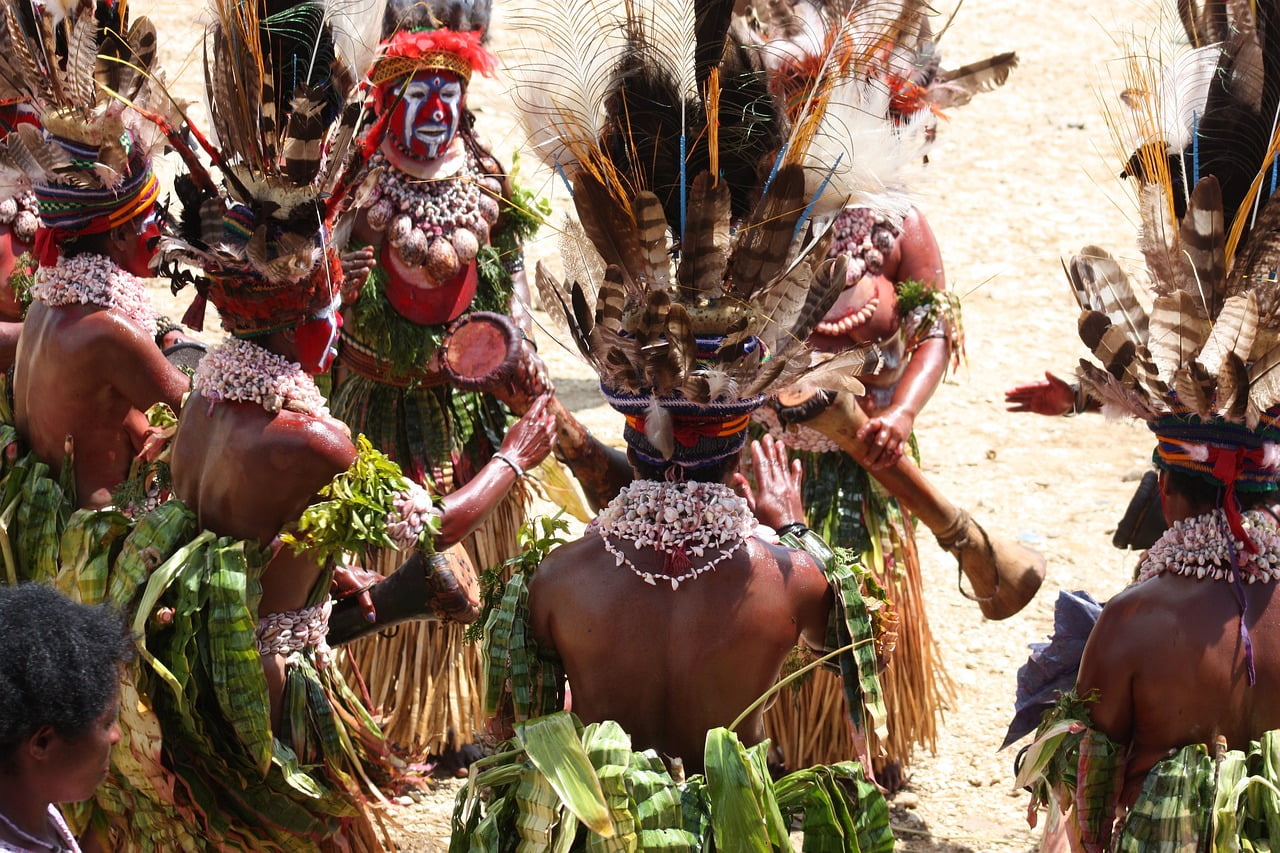
The experience of visiting Papua New Guinea is fantastic for travelers on a tight budget. Even though Papua New Guinea has some of the most beautiful landscapes on earth, it isn’t a popular tourist destination, so travelers can take in the wonders of the nation without spending a fortune. From cheap hostels and guesthouses to opulent hotels and resorts, Papua New Guinea offers a variety of lodging options. Depending on location and quality, a double room may cost anything from $25 to over $500 per night.
The cost of food varies widely in Papua New Guinea. Street food and local markets are great choices if you’re on a tight budget since meals may be had for as little as $2–3 USD each. In addition, mid-range eating is offered in eateries and coffee shops all around the nation, with supper mains costing about $10 USD.
Alcohol is pricey relative to other nations, with normal beer costs per bottle ranging from $3 to over $20 USD. The cost of traveling in Papua New Guinea is somewhat more than in other regions of the globe, with rates varied according to the form of transportation you choose. For a few hours of travel time, short trips may cost approximately $5 USD, while longer trips can cost up to $50 USD or more. Budget extra for transportation expenses because they can add up quickly.
What Is The Nicest Month In Papua New Guinea?
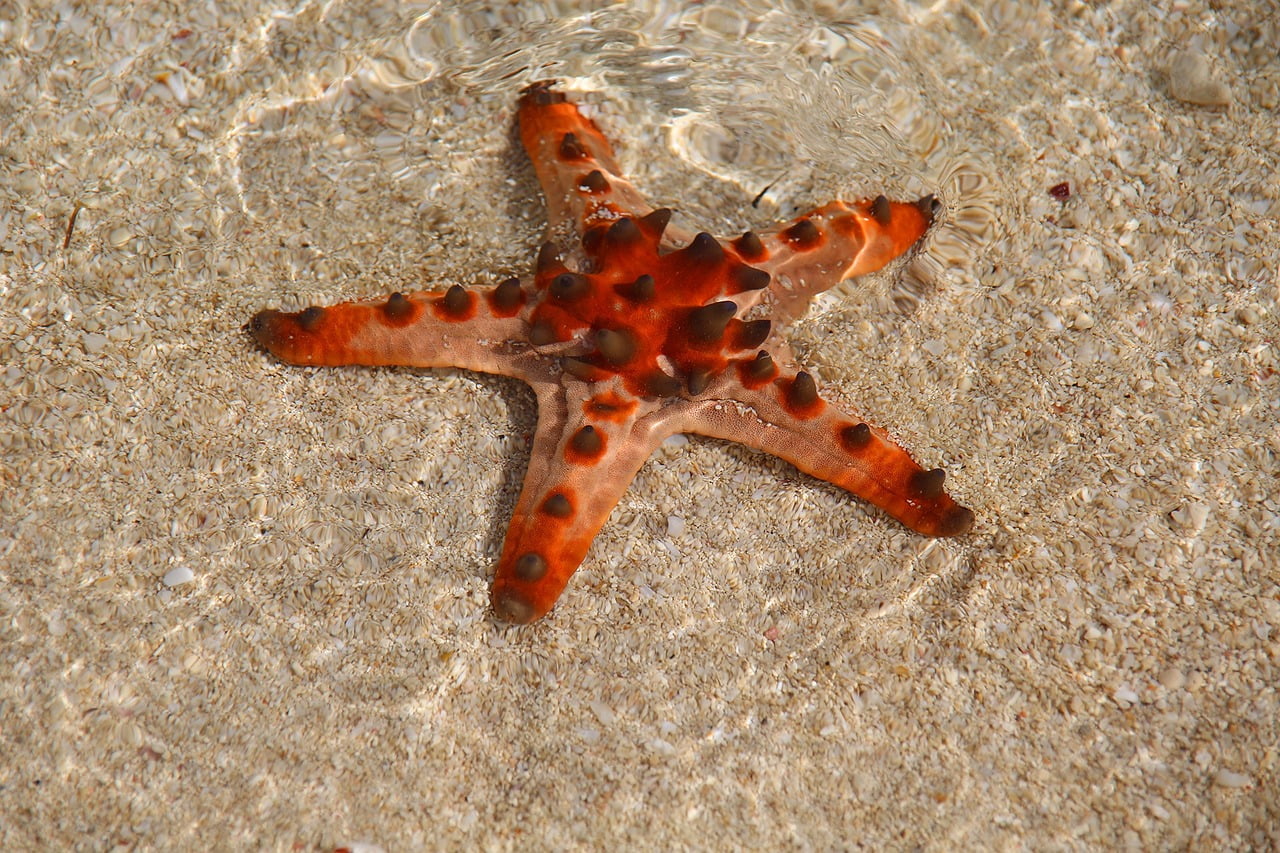
Travelers and backpackers alike will love Papua New Guinea because it offers such a wide variety of activities, from stargazing atop Oceania’s tallest peak to experiencing local culture in Sepik River communities. It’s understandable why tourists are drawn to Papua New Guinea due to its intriguing history, diverse population, and spectacular wildlife. Papua New Guinea is also well renowned for having a fantastic temperate temperature, which makes it an excellent option for anybody wishing to go to the tropics at any time of the year. But that’s not all. How about the ideal month to visit Papua New Guinea? What you’re searching for will determine everything! The months of April through May are ideal if you want to explore the diverse flora and animals.
With pleasant temperatures and lots of sunlight, the dry season, which lasts from June to October, is excellent for culture and adventure. The bulk of events, including the Mount Hagen Festival, take place during the dry season, giving it a fantastic opportunity to explore the regional cultures. The peak travel period, which also happens to be the rainy season, is from November to April. In Papua New Guinea, this is the busiest travel season due to the country’s year-round sunlight and occasionally-soaring temperatures of up to 38 °C (100 °F). This is excellent if you want to see the breathtaking scenery, since the rainy wet season has resulted in lush greenery and breathtaking waterfalls.
No matter what time of year you visit, a vacation to this tropical paradise will be an outstanding experience because to the pleasant weather and the very kind residents. The greatest time to enjoy the finest of what Papua New Guinea has to offer if you want to experience as much as you can while you’re there is in the month of March. Enjoy the pleasant weather and muggy forest surroundings while admiring the breathtaking scenery. Additionally, if you decide to travel in the dry season, you can take in the magnificent tribal celebrations that take place during that time.
Price Of Accommodation In Papua New Guinea
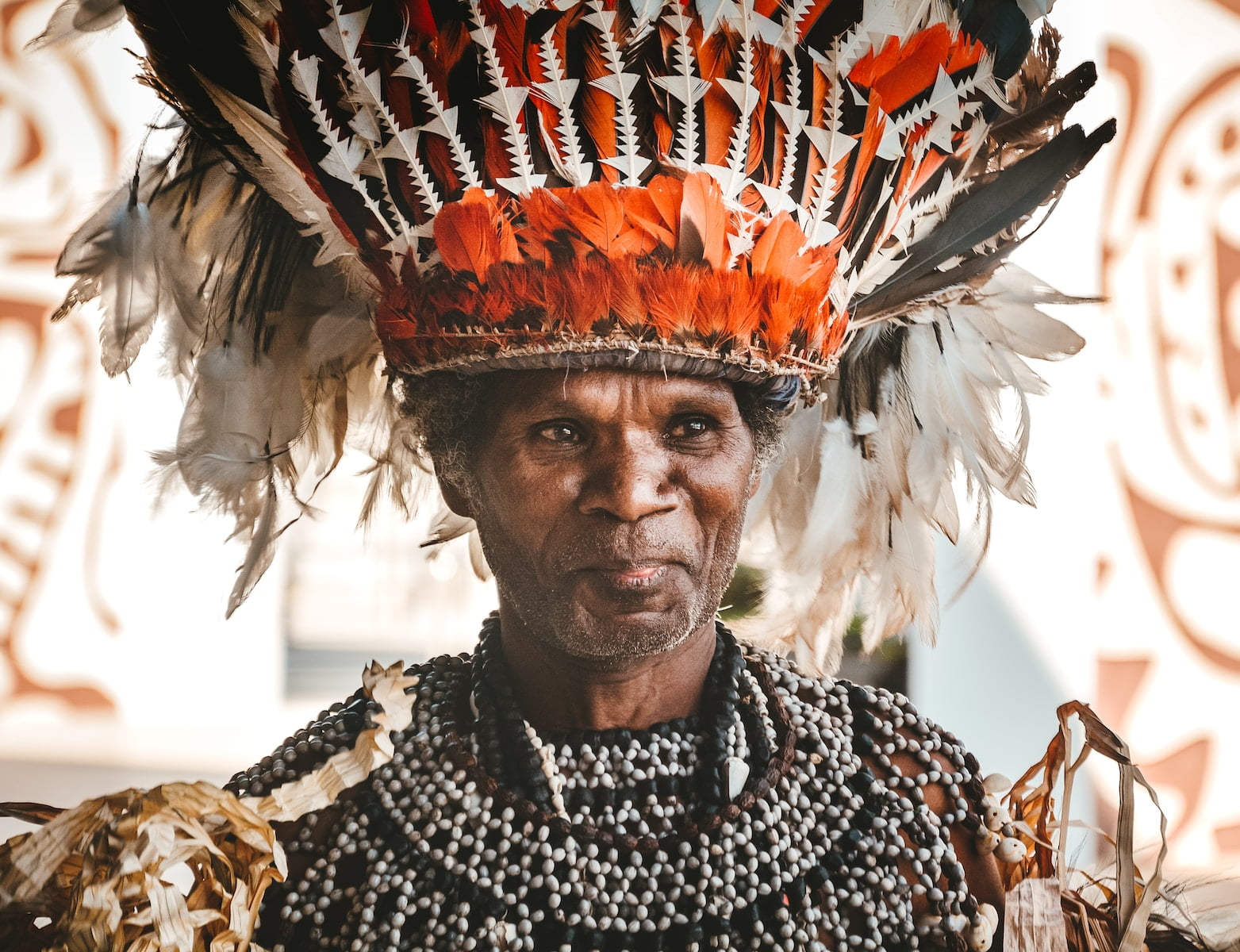
The customary inquiries that spring to mind while making travel arrangements to far-off places are, “What will it cost?” and “Is it expensive to visit?” The solutions you discover if you’re traveling to Papua New Guinea rely on your own tastes and schedule. Travel to PNG may be fairly reasonable since, on average, lodging expenditures there are far lower than in other Pacific Island countries, but unanticipated expenses might arise! The kind of lodging you choose and the area you go to will affect the cost of your stay in Papua New Guinea.
Outside of the city, prices are cheaper, but this is especially true in rural regions. You may also stay with a local family for a special experience and get even more intimate knowledge about the people, culture, and tourist hotspots while enjoying genuine Papua New Guinean hospitality. Only a few US cents are spent on transportation per kilometer, making it significantly less expensive than other places. However, prices will vary depending on the hour of the day, and more remote areas might not have the most fundamental transportation facilities.
Be prepared to spend modest sums on food. Fruits, vegetables, and regional delicacies are inexpensive and widely accessible across the nation, particularly when purchased at neighborhood markets. Main courses at restaurants may cost up to $20 USD if you decide to indulge.
Papua New Guinea Food And Drinks On A Budget
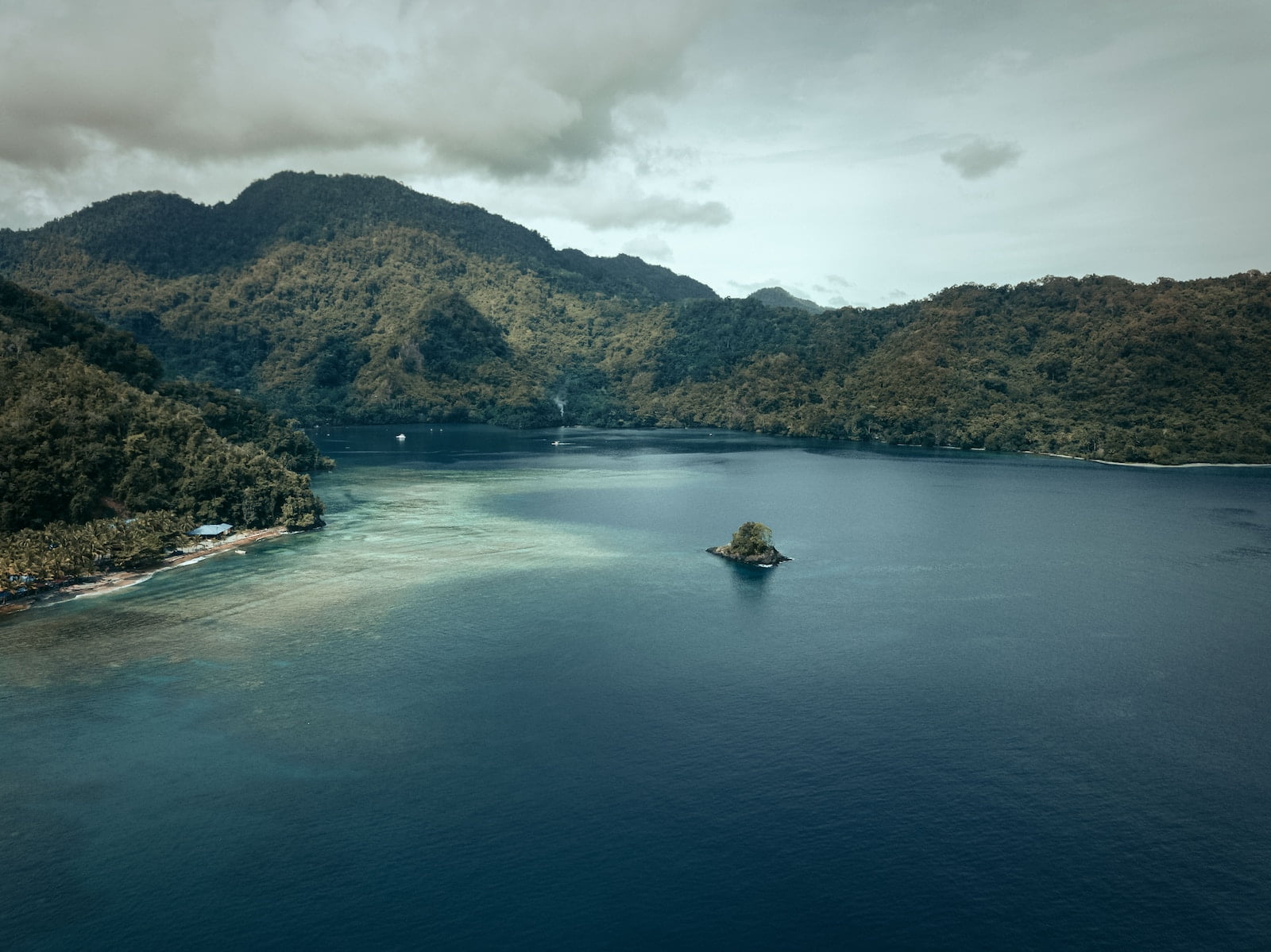
You may be wondering how much it will cost to go to Papua New Guinea. The short answer is no, it doesn’t have to be if you prepare ahead of time and choose wisely how to take use of the incredible variety of food and beverages available. The islands of Papua New Guinea are home to a variety of regional cuisines, each with its own distinctive tastes and aromas. The good news is that there are many inexpensive ways to experience the flavors of each location.
There are several eateries on the main island that provide filling traditional meals at affordable prices. For instance, you may choose from a variety of ‘chemase’, which are simple but delectable stews cooked with indigenous meats and vegetables, on the islands of Manus and East New Britain. You may wish to discover the wonders of Papua New Guinea’s native tapioca meals if you want to try something a little different.
There are several possibilities for individuals who want to try the regional alcoholic beverages. There is something for every budget, from the increasingly trendy Kombucha to the more traditional pineapple wine and fermented banana beer. Of course, there are also a lot of fine liquors and beers available if you’d like something a little stronger.
Papua New Guinea Transport On A Budget
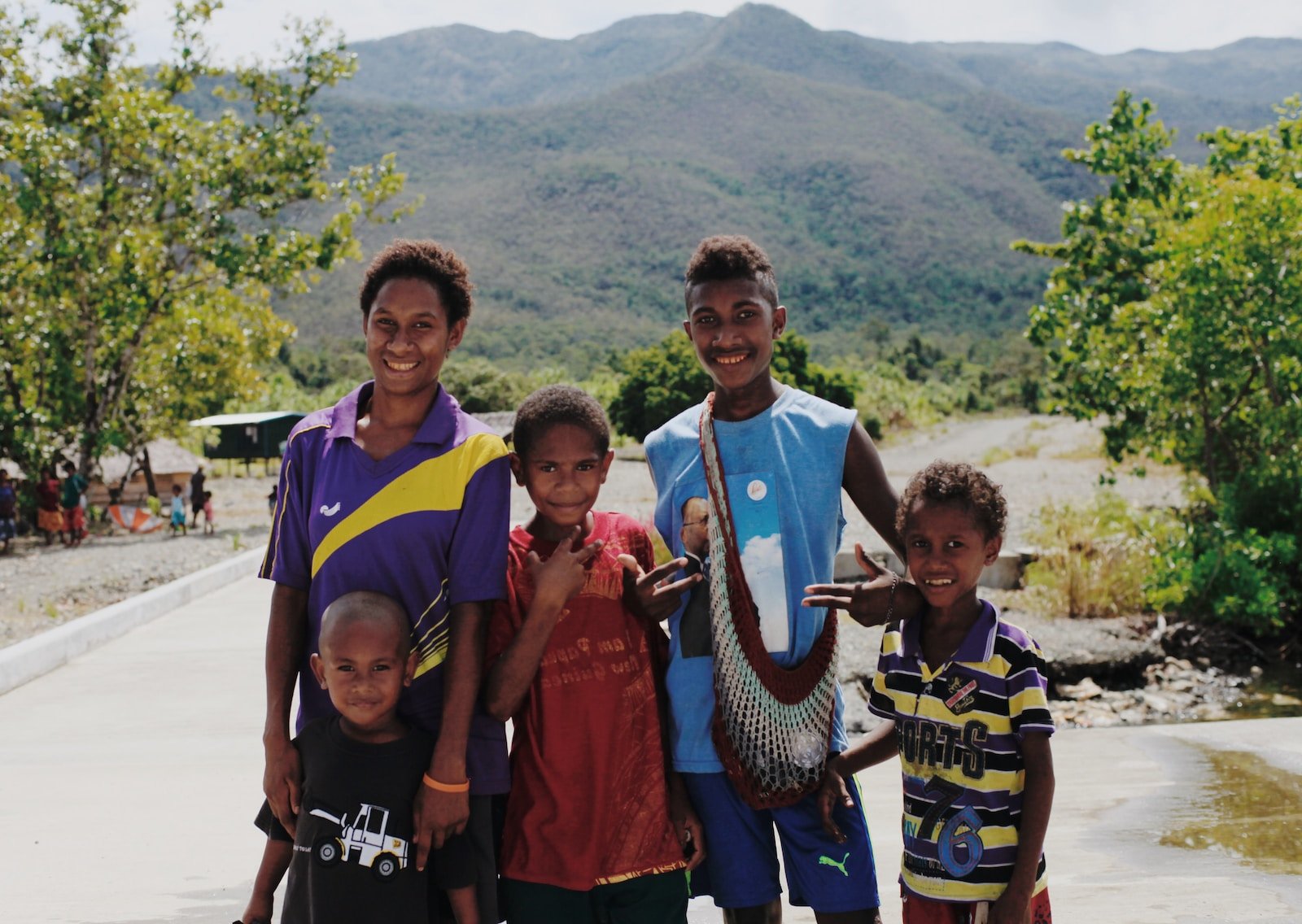
The wonderful country of Papua New Guinea is well-known for its breathtaking scenery, varied fauna, and colorful culture. However, if you’re on a tight budget, you might be thinking, “Is it expensive to visit Papua New Guinea?” The answer is that it needn’t be. You may easily travel across this amazing nation on a budget with a little preparation and some cunning techniques. One of the main travel-related worries is transportation. Fortunately, there are many options available in Papua New Guinea for getting around without breaking the bank.
For your road trip along the Highlands Highway, you could even rent a car if you’re feeling particularly daring. Using public transit, hitchhiking, carpooling, and cycling are some additional excellent methods to save costs on transportation inside Papua New Guinea. Buses connecting large cities and towns operate often, so you may board one and take pleasure in the ride. Additionally, hitchhiking is a common way to travel and meet locals and is an interesting activity. Last but not least, if you have the time, you may hire a bike and tour the neighborhood at your own leisure.
You can tour this incredible nation on a budget with a little preparation, planning, and ingenuity. There are several inexpensive methods to travel the nation, including buses, flights, bicycles, hitchhiking, and carpooling. So why are you still waiting? Plan your cheap vacation to Papua New Guinea right now!
How Much Spending Money Per Day In Papua New Guinea?
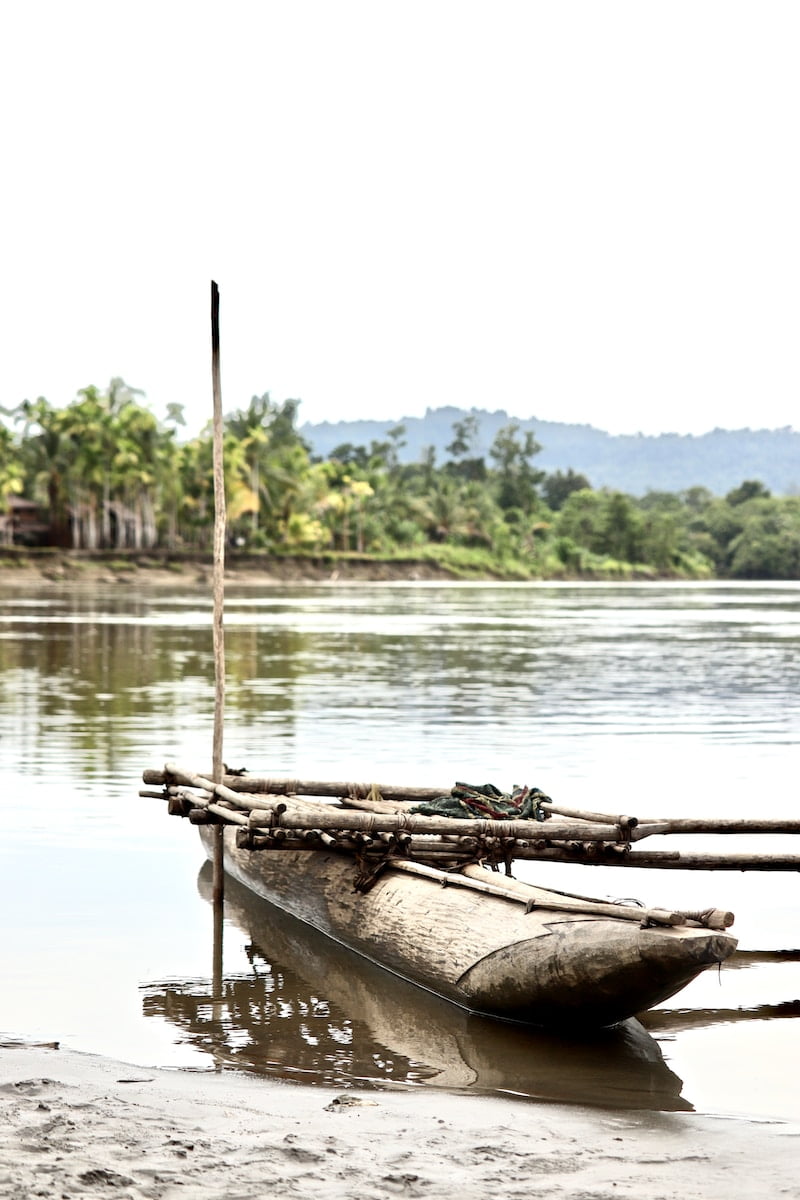
Travelers planning to visit this fascinating and varied nation often wonder, “How much spending money per day in Papua New Guinea?” Budgeting is essential for every successful travel, no matter the location. The amount of money you need to spend in Papua New Guinea will depend on the activities you choose to engage in since the country provides tourists a wealth of natural beauty and cultural experiences. On the other hand, PNG is far less expensive than its neighbor Australia, allowing travelers to travel across the nation without breaking the bank.
Obviously, this can change depending on your location and the activities you engage in. For instance, you should budget more if you’re staying in a high-end hotel and on expensive excursions or day trips. Many people choose to hitchhike around if they’re looking for an affordable way to explore the breathtaking landscapes. This allows you to stay in little towns along the road and see some amazing people while reducing your expenses to a minimal.
It’s free to paddleboard and swim around the reefs, which is a terrific opportunity to take in unspoiled nature. Additionally, you can participate in a hike to a nearby waterfall or a cultural village stay with a local tribe. Papa New Guinea offers reasonably priced cuisine, with lunches ranging between $5 and $10 USD. You may pick from a wide range of regional foods, including sago and taro as well as salmon and pig. But keep in mind that eating out in tourist areas with higher population costs more money.
Facts And Currency In Papua New Guinea
A intriguing and reasonably priced experience might be traveling to Papua New Guinea. Traveling to PNG is not costly if you plan your vacation well, despite the fact that the nation has its own currency and different costs depending on region. This is especially true if you decide to use local transportation and take advantage of ecotourism options. The Kina (PGK), which is broken into smaller denominations of Toea (or just “t” for short), is the unit of currency of Papua New Guinea. Contrary to other nations, the Kina and Toea are not frequently printed; instead, the majority of transactions are made with coins, though cash is also accepted.
According to the current PGK conversion rate of 1 AUD = 0. 30701 PGK, 1 Kina is equivalent to around 33 AUD cents. There are notes available in the following denominations: 1, 2, 5, 10, 20, and 50 Toea, a 2 Kina coin, and lesser denominations of 1, 2, and In Papua New Guinea, food and lodging are often inexpensive, and Port Moresby, the nation’s capital, offers a variety of alternatives, from inexpensive hostels to five-star luxury hotels.
PNG is a reasonably priced travel destination overall, although costs will still be higher than average. Despite this, there are still numerous options for inexpensive travel and tourism in Papua New Guinea, and the cost of living there is relatively modest by comparison to western norms. It’s a fantastic option for individuals on a tight budget who want to have an exciting and memorable holiday.
The End Of The Journey
Visiting Papua New Guinea doesn’t have to be expensive – if you plan ahead and do your research, you can have an incredible experience without breaking the bank! Not only does the local currency offer great value for money, but having a culturally immersive experience too can make all the difference when it comes to understanding the diversity and uniqueness of the country.
With that in mind, it’s time to explore some of the cheapest and most rewarding ways to visit Papua New Guinea. Are you excited to explore this captivating destination but unsure of what to expect when it comes to cost? Are you looking for ways to travel around Papua New Guinea on a budget? Fear not – below, we’ll share some of the tips and tricks that seasoned travelers use to keep their costs low in this wonderful country.
Flights to Papua New Guinea will vary depending on your departure point, but there are some great deals to be had with airlines like Air Niugini or Qantas. You can also get great discounts when booking in advance, so keep your eye out for these to ensure you get the best rates. Visiting the country itself is also surprisingly affordable. While cities such as Port Moresby may be more expensive than other places, there are still plenty of budget-friendly options to explore. The small towns and villages scattered across PNG offer some of the most impressive views of the jungle and stunning rivers that make this country so special.
It’s also important to remember that the locals don’t rely heavily on tourists for income, so there’s no pressure to spend a fortune during your visit. Keep an open mind when bartering for souvenirs and make sure you spend your money in areas that contribute positively to the local economy. So, is it expensive to visit Papua New Guinea?
Not necessarily! It pays to do your research and be strategic with your spending, but with the right planning, you can expect to experience one of the most exciting, one-of-a-kind countries on Earth without having to blow your budget. Don’t hesitate to start researching flights and packages today and discover how Papua New Guinea can work for your pocketbook and your dreams!
Frequently Asked Questions (FAQs)
Is it expensive to travel to Papua New Guinea?
Airfare to the country can be expensive, and accommodations and activities can also be costly.
Is Papua New Guinea an expensive country?
Prices for accommodation, transportation, and activities can be higher than in other parts of the world. However, if you plan your trip carefully and take advantage of local deals and discounts, it is possible to visit Papua New Guinea on a budget.
Do people vacation in Papua New Guinea?
There are many attractions and activities to explore, such as trekking, diving, and birdwatching. Visitors can also explore the local culture, visit markets, and experience traditional ceremonies.
Is Papua New Guinea a rich country?
According to the World Bank, Papua New Guinea has a lower-middle-income economy and is one of the least developed countries in the world.
Your Next Adventure Starts Here – Don’t Miss Out!
Everything you need to book, plan, and live your dream trip—right at your fingertips. The best deals and experiences sell out fast, so start exploring now before they’re gone.
Score unbeatable airfare deals with Skyscanner and Expedia. Compare flights worldwide, find hidden discounts, and book in minutes. Lock in your ticket now before prices jump.
Find the perfect place to stay anywhere in the world. Compare prices, read reviews, and book instantly for peace of mind on your travels.
Protect yourself while traveling with comprehensive insurance options. Quick setup, global coverage, and peace of mind wherever you go.
Discover tours, activities, and unforgettable experiences. Book easily online and explore at your own pace.
Get your Revolut card to manage your finances effortlessly while traveling. Instant digital setup, low fees, and worldwide acceptance make spending safe and simple.
Stay connected anywhere with global eSIMs from Airalo. Easy setup and affordable data plans for travelers.
Book local experiences and deals effortlessly with Saily. Save money while discovering unique activities.
Claim compensation for delayed or canceled flights with AirHelp. Quick and hassle-free process for travelers.
Love our content? Support our team in content creation via Buy Me a Coffee. Every contribution helps us deliver better guides, tips, and travel inspiration.

